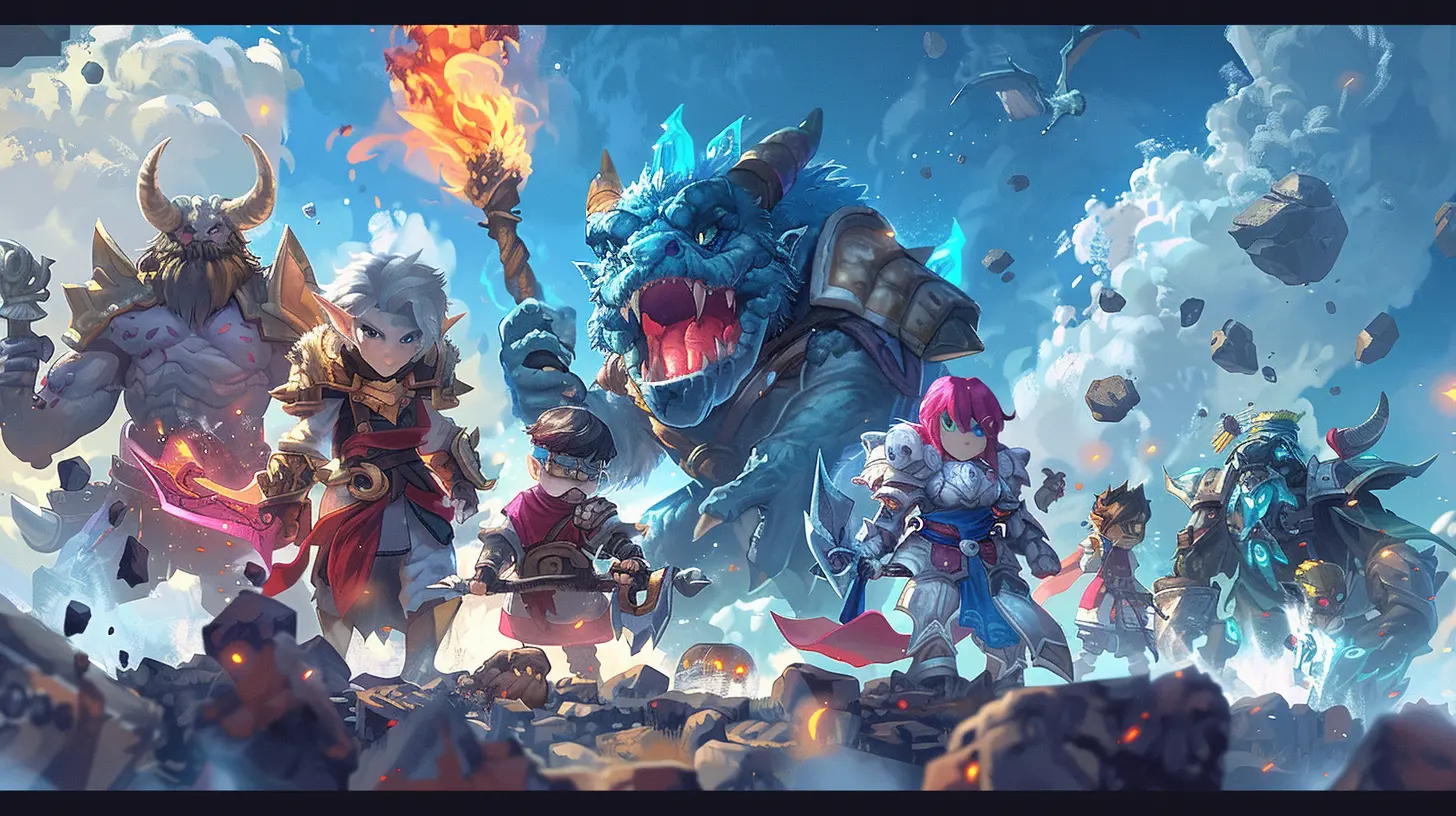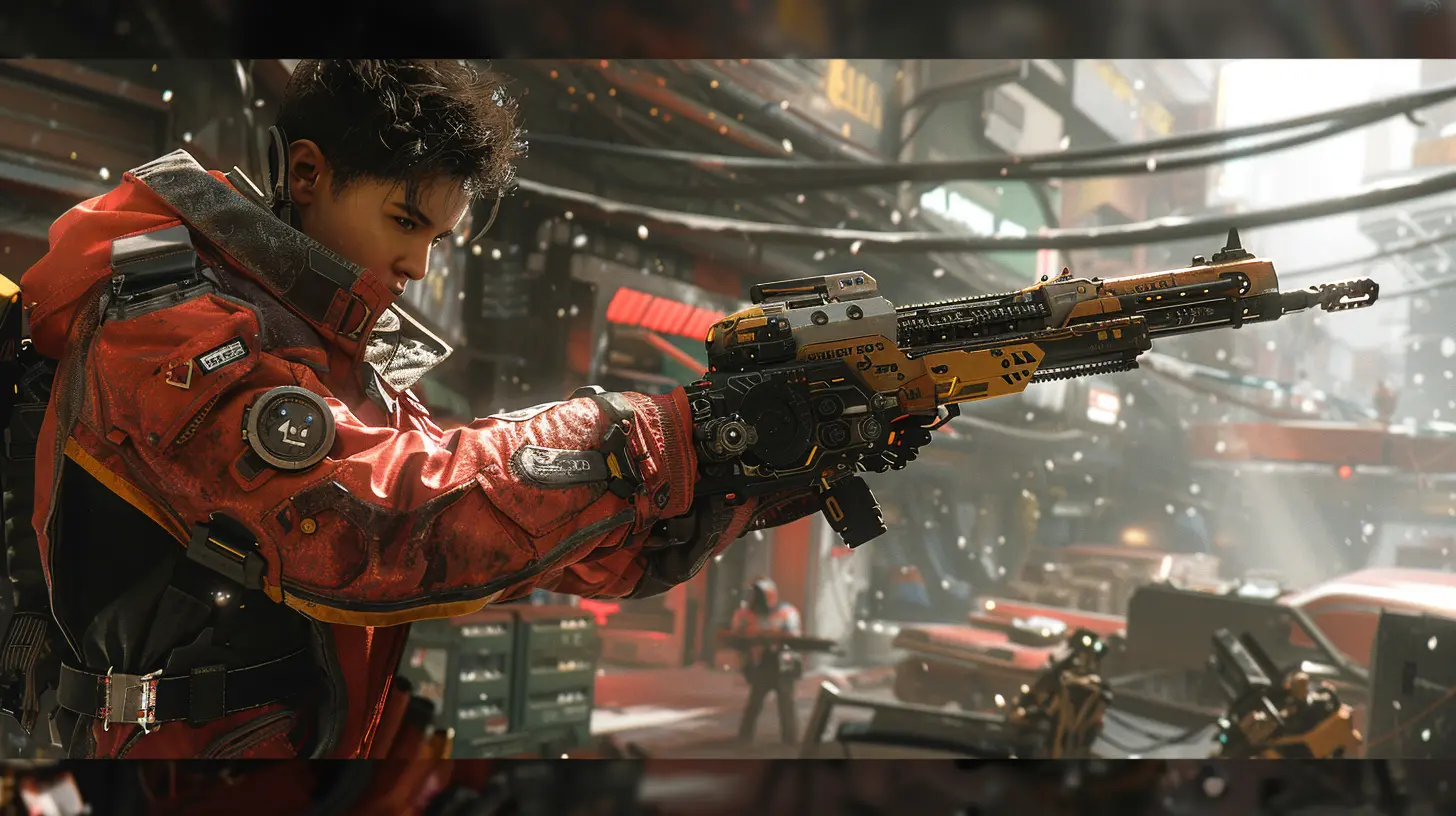Why Some Gamers Avoid Microtransactions—and How Developers Can Win Them Over
8 February 2025
Let’s face it: the gaming world has changed a lot over the last couple of decades. Gone are the days when you’d save up your allowance to buy a game and get everything it had to offer right there on the disc or cartridge. Now? Microtransactions are everywhere, and, frankly, they’ve become a hot-button topic for gamers. Some embrace them, some outright despise them, and others tread cautiously, unsure if they’re getting good value or simply being milked for cash.
But why exactly do some gamers avoid microtransactions like the plague? And more importantly, is there a way for developers to bridge the gap and earn their trust (and maybe a little of their money)? Let’s dive into this with empathy and understanding—because this isn't just about dollars and cents. For many gamers, it’s personal.
Microtransactions in Gaming: The Double-Edged Sword
Microtransactions can be a blessing or a curse, depending on how they're implemented. On one hand, they’ve given developers ways to support games long after release, funding updates, new content, and even entirely new experiences. On the other hand, they’ve also led to broken trust, paywalls, and (be honest) a lot of frustration.You know how it feels—you’re playing your favorite game, vibing with the experience, and then BAM! You hit a point where it feels like your progress is locked behind a paywall. It’s like ordering a burger and being told you need to pay extra for the bun. Not fun, right? That’s exactly what a lot of gamers feel when microtransactions aren’t handled thoughtfully.
But…not all microtransactions are inherently bad. Some games integrate them in ways that feel fair and optional. So what’s the real issue? 
Why Some Gamers Avoid Microtransactions
1. They Feel Predatory
Let’s rip off the Band-Aid: many gamers feel like microtransactions prey on their emotions. Think about those flashy in-game stores showing rare skins, boosts, or loot boxes. They’re designed to catch your eye and trigger FOMO (Fear of Missing Out), which can lead to impulsive spending.But for gamers who recognize this manipulation, it feels…well, gross. No one likes the idea of being psychologically nudged into spending money.
And loot boxes? That’s a whole other can of worms. It’s not just about paying for content; it’s about gambling for it. Imagine paying $5 to open a digital box, only to get a duplicate of an item you already have. That’s enough to make anyone swear off microtransactions for good.
2. It Creates a Pay-to-Win Landscape
Ever joined an online match and realized another player’s character is basically untouchable because they’ve spent hundreds on upgrades? Pay-to-win mechanics are one of the biggest reasons gamers roll their eyes at microtransactions.For many, gaming is supposed to be about skill, strategy, and dedication—not how much money you’re willing to throw into the game. When microtransactions tilt the playing field, it alienates players who can’t or won’t spend extra cash.
3. It Ruins Immersion
Gaming is supposed to be an escape, right? Whether you’re exploring a fantasy world or shooting your way through a zombie apocalypse, you want to stay immersed in that experience.Microtransactions can shatter that immersion. How? Imagine you’re in the middle of a tense storyline, and suddenly the game offers you the chance to “buy a premium weapon for $9.99.” It’s like someone interrupting your favorite movie to sell you car insurance. No thanks.
4. They Can Get Expensive—Fast
Let's not ignore the elephant in the room: microtransactions add up quickly. Sure, spending $0.99 here or $2.99 there might not seem like a big deal, but over weeks or months? It can balloon into a hefty sum.For gamers on a budget, microtransactions can feel like they’re being nickel-and-dimed. This perception, rightly or wrongly, fosters distrust and skepticism toward any game that includes them. 
How Developers Can Win Over Skeptical Gamers
Now, let’s flip the script. If microtransactions aren’t going anywhere (and, let’s be real, they’re not), how can developers implement them in ways that don’t alienate players? The answer lies in building trust, being transparent, and putting the player experience first.1. Make Microtransactions Truly Optional
Gamers are far more likely to embrace microtransactions if they genuinely feel optional. Want to sell cosmetic items like outfits, skins, or emotes? Go for it! Players are generally fine with spending money on things that don’t impact gameplay.Take games like Fortnite or Apex Legends, for instance. Their microtransactions are centered around cosmetics. You can compete and enjoy the game without spending a dime—and that simple fact earns developers a lot of goodwill.
2. Be Transparent About Costs
No one likes surprises when it comes to their wallet. Be upfront about pricing, odds for loot boxes (if you insist on having them), and exactly what players are getting for their money. Transparency builds trust.Speaking of loot boxes, why not just ditch them for direct purchases instead? Gamers appreciate knowing exactly what they’re paying for. Mystery is fun in storytelling, not in spending.
3. Reward Players for Playing
Want to encourage spending without alienating your audience? Reward players for their time and effort. Introduce in-game currencies or earnable items that complement microtransactions.Games like Warframe have nailed this balance. Sure, you can spend money to get items faster, but you can also grind to unlock them for free. It’s fair, and it gives players the choice.
4. Keep the Game Balanced
Above all, avoid pay-to-win mechanics. Seriously, just don’t go there. Gamers have long memories, and once a game earns a reputation for being pay-to-win, it’s hard to shake. Balance the game so spending money enhances the experience without breaking it.Think of it like a buffet: paying extra for premium dishes is fine, but nobody’s going to stick around if the basic options are bland and disappointing.
5. Listen to Your Community
This one should be obvious, yet developers sometimes miss the mark: listen to your players. Gamers are vocal, passionate, and unafraid to call out bad practices. If a particular microtransaction model sparks outrage, don’t dig in your heels—take the feedback, adjust, and show your audience that you care about their experience.
Building a Win-Win Microtransaction Model
At the end of the day, the goal should be simple: create a system where players feel good about spending money, and developers can keep their games thriving. It’s a delicate balance, but it’s not impossible.By designing fair, transparent, and optional microtransactions, developers can cultivate trust and maybe even win over those players who’ve sworn off in-game spending altogether. Gaming is an art form, but it’s also a conversation between creators and players. Developers who respect their audience will always come out on top.
After all, wouldn’t you prefer to pay for something you want to buy—rather than feeling like you have to?
Final Thoughts
Microtransactions can be tricky territory, but with some empathy and smarter game design, they don’t have to be the villain of the gaming industry. Gamers want to support the games they love; it’s just a matter of making that support feel worthwhile and not exploitative.Whether you’re a player who avoids microtransactions or a developer looking to implement them, the key is simple: respect the player’s time, money, and trust. Build that connection, and everyone wins.
all images in this post were generated using AI tools
Category:
MicrotransactionsAuthor:

Greyson McVeigh
Discussion
rate this article
6 comments
Petra Hubbard
Great insights! It's crucial for developers to understand gamers' concerns about microtransactions. Striking a balance between monetization and player experience can truly enhance engagement.
February 23, 2025 at 3:20 AM

Greyson McVeigh
Thank you! Understanding gamers' perspectives is indeed vital for creating a positive balance between monetization and player experience.
Lyra Potter
This article beautifully captures the concerns many gamers feel about microtransactions. It’s crucial for developers to understand and respect their audience's values. By prioritizing fair practices and genuine engagement, they can rebuild trust and create a gaming community where everyone feels valued and included. Thank you for this insightful piece!
February 14, 2025 at 5:55 PM

Greyson McVeigh
Thank you for your thoughtful comment! I completely agree—prioritizing fair practices is essential for rebuilding trust and fostering a positive gaming community.
Issac McGonagle
Microtransactions often undermine the immersive experience gamers seek. To win them over, developers must prioritize fair pricing, clear value, and meaningful content. By fostering genuine engagement and building trust, they can transform skepticism into loyalty, creating a gaming environment where both players and developers thrive harmoniously.
February 13, 2025 at 5:10 PM

Greyson McVeigh
I appreciate your insights! Prioritizing fair pricing and meaningful content is crucial for rebuilding trust and enhancing the gaming experience. Encouraging genuine engagement will definitely help bridge the gap between players and developers.
Sabina McGillivray
Microtransactions can disrupt gameplay immersion and create barriers for players seeking a fair experience. Developers should prioritize transparency, offer meaningful content, and ensure that purchases enhance rather than hinder enjoyment. By valuing player feedback, they can foster loyalty and create a more inclusive gaming environment.
February 12, 2025 at 4:17 AM

Greyson McVeigh
I completely agree! Prioritizing transparency and player feedback is crucial for developers to create a fair and enjoyable gaming experience. Meaningful content should always enhance immersion, not disrupt it.
Dominique Dorsey
Microtransactions? More like micro-aggro! Gamers aren't cash cows; we’re here for the thrill, not your wallet raid. Developers, listen up: earn our loyalty with real content, not nickel-and-dime tactics. Level up your game!
February 10, 2025 at 3:25 AM

Greyson McVeigh
Absolutely agree! Gamers value genuine content over exploitative tactics. Building trust through meaningful experiences is key to winning back players.
Wade Ross
Transparency and fairness in gaming truly build lasting trust. Great insights!
February 8, 2025 at 5:36 AM

Greyson McVeigh
Thank you! I appreciate your feedback. Transparency and fairness are indeed crucial for fostering trust between gamers and developers.




